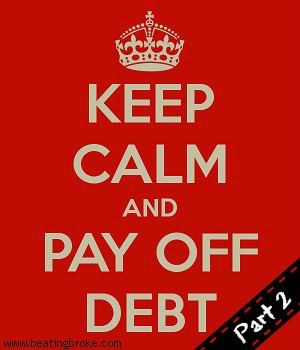Ah, summer. Your kids get to take a break from the school grind, and as a parent, you get to take a break from the homework grind. While your child will likely have fun hanging out with friends, playing sports, going to the movies, and reading, now is the time for you to sneak in a little summer education.
Teaching our kids about money is one of the most important things we can do as parents. What our children learn about money and see us do with money will likely affect them for years to come. This summer, take the time to educate your children about money while making it fun.
TD Bank’s Summer Reading Program
 TD Bank has a summer reading program where your kids will earn $10 if they read 10 books. TD Banks are mainly on the East coast, so not all kids can benefit from the reading program. However, all kids can take advantage of TD Bank’s summer reading list for kids from Kindergarten to 7th grade.
TD Bank has a summer reading program where your kids will earn $10 if they read 10 books. TD Banks are mainly on the East coast, so not all kids can benefit from the reading program. However, all kids can take advantage of TD Bank’s summer reading list for kids from Kindergarten to 7th grade.
The list is broken down by grade level, and each book suggested has a financial lesson. For instance, one of the books for 7th grade is Money Hungry, a story about a young girl who is driven by greed.
TD Bank also has a section for parents that includes a story that you can read to children along with worksheets you can do with them. In addition, there is a virtual stock game that your kids can play to practice investing in the stock market.
Dave Ramsey’s Financial Peace, Jr.
Dave Ramsey takes his advice and rolls it into a package for children. Financial Peace, Jr. includes audio CDs as well as a workbook. There are also cash envelopes, stickers, and other fun activities for kids. This kit is for kids ages 3 to 12. When two of my kids were 4 and 8, they loved listening to the CDs and doing the activities.
Nick Jr. Money Games and Activities
If you have little ones who are just starting to learn about money, why not try Nick Jr.’s Money Games and Activities. These activities primarily help young kids differentiate coins and learn the value of each one.
Star Banks Adventure
T. Rowe Price has created this game as part of their Money Confident Kids program. This game will likely be appealing to kids thanks to the video game-like presentation. Parents will love that the program teaches kids about inflation, saving, spending wisely, and asset allocation, among other topics. This game is available as an app and as an online game.
Board Games
On a long, hot summer day, nothing beats staying inside playing a board game. Many classic board games offer your children entertainment AND financial education. Some of my favorite for this purpose are Monopoly, Life, and Payday.
Use these activities a few times a week, and your child will not only have a fun summer, but one that is filled with financial lessons.
What are your favorite activities and games to teach your kids about money?
Melissa is a writer and virtual assistant. She earned her Master’s from Southern Illinois University, and her Bachelor’s in English from the University of Michigan. When she’s not working, you can find her homeschooling her kids, reading a good book, or cooking. She resides in New York, where she loves the natural beauty of the area.


